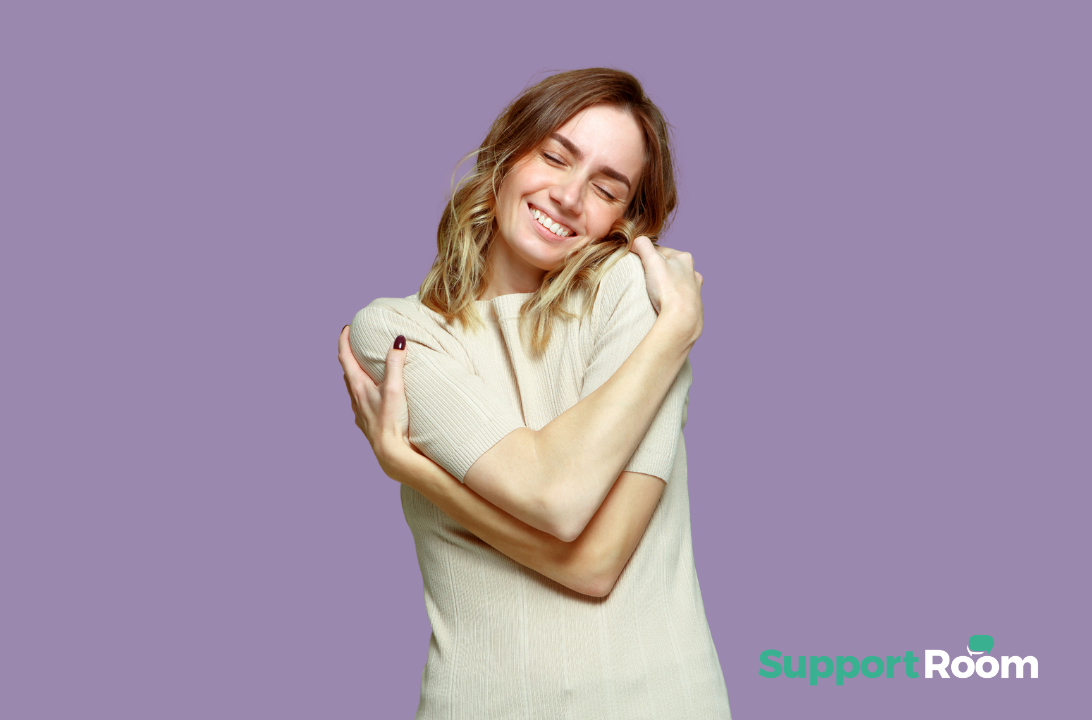You probably hear the word “mindfulness” a lot, the benefits of meditation. And maybe you’re never THAT sure what is meant by this somewhat overused expression? And, perhaps, you feel that it’s something for other people?
If this is the case, read on to find out more about the mental health benefits of meditation. We’ll furnish you with the basic facts you need to see how mindfulness could help you make your 2021 a better mental health year.
So, get ready to relax: grab a warm drink, turn the lights down low, find a comfortable position. Because that’s what it’s all about.
What the heck is mindfulness?
You might think that mindfulness is all about long, flowing gowns, banging gongs, and expressing yourself through the medium of dance. It might bring to mind nut roasts and vegan turnip bakes and hessian sack cloths.
You might think that mindfulness is not for you; that it’s something other people do.
But that couldn’t be further from the truth.
I mean, you may come across long, flowing gowns and nut roasts somewhere along the path, but only in the same way that those rather delightful things are a feature of every other facet of life.
Mindfulness is about learning to inhabit your thoughts, existing in the present moment, and developing a deep awareness of your actions and behaviours.
You could say that mindfulness is a facility we’ve lost – the ability to become fully aware of where we are and of what we’re doing.
Modern life bombards us with stimulation in the form of information, education, entertainment, and distraction.
In short: most of us have lost our ability to be still.
Modern life is rubbish
Perhaps you go out for the day. You visit a spa town or go for a walk in the countryside. You see something wonderful, like a fantastic sunset or a striking building.
What’s your first instinct?
For many of us, our instant response is to take a picture and share it on Social Media. We see that beautiful sight through a digital screen, and we give the memory to our camera. We capture the picture before we’ve had a chance to check in with how it makes us FEEL.
And we move on to the next wonderful thing to capture.
We remember the pixels, rather than the moment.
We want instant gratification
Depression and anxiety are at an all-time high – in fact, poor mental health is the second most prevalent illness in the UK.
And while it’s simplistic to suggest that waning mental health is a symptom of taking photographs with your mobile phone, there is a commonality in the need for instant gratification provided by the likes and comments we get from social media (with unsatisfying outcomes that affect our mental health).
Instant gratification is a short-lived and unsatisfying euphoric hit. And when the initial rush recedes, we’re left with an addictive need for more of the same.
It’s unsustainable.
How mindfulness and meditation can help
So, to the nitty-gritty.
How – exactly – does mindfulness work, and why is it right for you?
In short, mindfulness is the most natural state of being. But we have to relearn how to connect our thoughts to the present moment to access it.
The vast majority of meditation techniques rely on the use of breath to bring us into the present moment. Some people talk about the “emptying of the mind” but – in my experience – I find emptying the mind almost impossible and unmaintainable – One of the main benefits of meditation.
So, my conduit to the present moment is the breath.
Every single breath is entirely unique, like each flame in a fire. It happens once and once only. And this is what we learn to recognise.
There’s a saying in yoga that you aren’t allotted a number of days, hours, or minutes that we live; we’re prescribed a number of breaths.
So, if we learn to slow down our breath, we slow down our demise to the grave.
The breath is directly attributable to your physical anxiety
The pace of your breath is related to your heartbeat and blood pressure. There’s a lot of physiological science behind this, but – essentially – if we consciously slow down our breath rate, it makes the heart pump slower, which has a knock-on effect with your blood pressure and the levels of anxiety we feel.
This isn’t to say that we forcefully slow down our breath – that can increase blood pressure. But the most simple of all meditations is just recognising your physiological response to your breath.
Ujjayi breathing
Stage 1 of Ujjayi pranayama (according to BKS Iyenger) is about recognition and becoming aware of your breath.
Try this practice. At no time should you feel strain, discomfort, or pressure around the chest, neck, or forehead.
- Lay down on the floor – if you can, prop your back up with a bolster or some pillows. You can do this while sitting; if you do, sit as upright as you can.
- Listen to the sound of your normal breathing. Notice the sound at the nostrils and within the throat and the chest. Observe that the in-breath sounds different to the out-breath.
- Feel the breath as it touches the sinuses. The in-breath touches the inner, lower section of the sinuses, and the out-breath touches the upper, outer surfaces of the sinuses.
- As you breathe in, consciously inflate both lungs equally. Feel the rise of the ribcage and the expansion of the chest.
- As you exhale, consciously deflate both lungs equally. Feel the ribcage soften and gently fall.
- Listen to the sound of the breath and notice if it changes as you continue to practice. Aim for equal in-breaths and equal out-breaths.
- Notice that the out-breath brings quietness and calm to the front of the brain.
- Notice that the in-breath introduces energy into the blood.
- Practice this awareness of the breath for as long as you like. Start with a minute or two, then extend the duration of your practice.
Listen, feel, and experience
When you learn to listen, feel, and experience the breath, your general anxiety levels are likely to drop. Anxiety is associated with shallow breath and a fast heartbeat. This practice consciously slows everything down.
Learning to Meditate
Most of us need to follow a guided meditation to wholly feel that we’re letting go, although experienced meditators are capable of developing individual practice.
Essentially, the mindfulness that comes from meditation practices draw your attention into the present moment. Those who live in the present can control their existence. If we live in the past, we live with guilt; if we live in the future, we live in anxiety.
The only thing we CAN control is this moment now.
So, next time you’re tempted to go instantly for your phone to capture the moment, resist it. Take deep breaths and drink it in instead.
SupportRoom
We developed the SupportRoom platform to change the way we access mental health support. We believe that nobody should suffer in silence and that therapeutic support is a right; not a privilege.
SupportRoom is nearly ready to go live. Register your interest with us today, and we’ll be in touch as soon as we’re ready to go.
SupportRoom offers confidential, professional mental health support for individuals and for businesses through a digital EAP solution. We connect people with licensed therapists in real-time; providing round-the-clock support with an always-on platform.
SupportRoom’s EAP solution provides deep analytics to help organisations understand why employees are affected by mental health issues in the workplace, helping organisations improve mental health across their workforce.
We recognise the benefits of meditation for mental health and feel it’s important to share how to incorporate it into your routine for those willing to make a change.
Gain FREE access to Heartbeat
Get a free Heartbeat Survey.
Let us uncover the true state of your team’s wellbeing with a free mental health survey for your entire organisation.
Gain valuable insights to see how you can better support your team’s mental health and performance.
No pitch. No credit card required.



